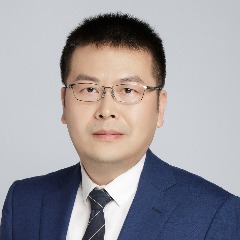• Xiaoli Yan, Xinying Jia, Zhenyao Luo, Shunjia Ji, Meng-Jie Zhang, Hui Zhang, Mingjia Yu, Julie Orts, Kai Jiang, Zhi Lin, Zixin Deng, Xu-Dong Kong, Bostjan Kobe, Yi-Lei Zhao, Mehdi Mobli, Xudong Qu
An enzymatic dual-oxa Diels-Alder reaction constructs the oxygen-bridged tricyclic acetal unit of (-)-anthrabenzoxocinones.
Nature Chemistry 2025, 17, 1058-1066.




